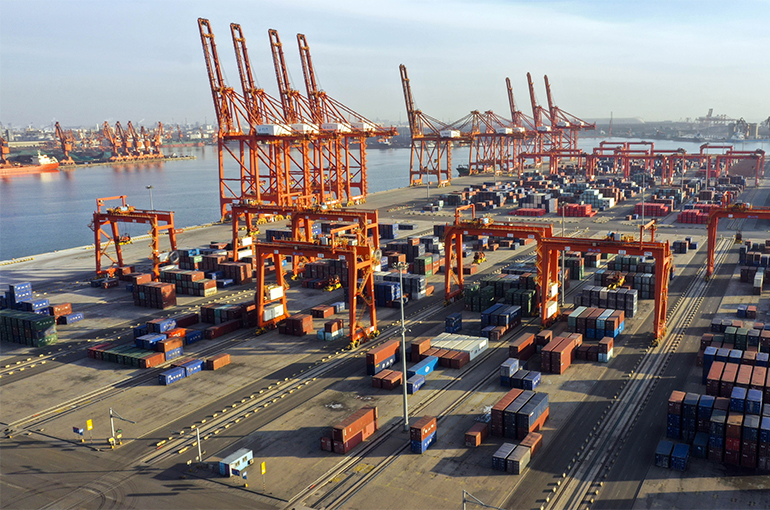 Bibles, Chicken Feet Are Caught in Crossfire of China-US Trade Tiff
Bibles, Chicken Feet Are Caught in Crossfire of China-US Trade Tiff(Yicai) May 12 -- Bibles and chicken feet are among the more surprising products to be adversely affected by the ongoing trade dispute between China and the United States, two of the world’s biggest trading partners.
The steep reciprocal tariffs imposed by the US government on nations around the world on April 2 had an unexpected negative effect on Bible purchases in the US after it was discovered that a printing press in China’s Nanjing is actually one of the world’s biggest Bible printers.
Amity Printing, founded in 1988, is known for its advanced lightweight paper printing technology. It can produce ultra-light Bibles that weigh just 22 grams. The firm reportedly produces over 75 percent of the new Bibles in the world and so far has printed 260 million Bibles in 229 different languages for 158 countries and regions. These include Braille Bibles, scroll-style Bibles and even Bibles with hidden images and text.
However, fortunately for Christians in the US, the Trump administration listed certain books, including Bibles, as exempt from the reciprocal tariffs under the International Emergency Economic Powers Act, according to US media reports in late April.
US meat processing factories, though, have been struggling to find alternative customers for their byproducts after China slapped additional tariffs of 15 percent on US agricultural products, effective March, as part of broader trade retaliation measures, Phoenix New Media reported, citing an importer.
Chicken feet, which are considered to be low-value or even waste products in the US, are very popular in China, along with pork by-products such as pig’s feet, heads, stomachs, intestines and ears.
China cancelled 12,000 metric tons of US pork orders in the wake of the new tariffs, according to data from the US Department of Agriculture.
Blindly imposing tariffs could backfire by fueling inflation in the US, importers say. Selling pork by-products to China helps US producers spread their costs, which keeps the price of popular cuts such as pork belly low at around USD5 per kilogram. However, if producers are unable to sell the by-products the cost has to be spread across fewer products and the price of pork belly might go up to USD7 per kg.
Alternative Sources
When US chicken feet suddenly became unavailable, the Chinese market quickly adjusted and began to source from Brazil and Russia. Pig stomachs from Canada and the Netherlands are now replacing those from the US. And in March, China even lifted an import ban on Argentine poultry that had been in place for two years to allow Argentine chicken to return to the Chinese market. Pork by-products from the South American country have also made a comeback.
Despite the US and China reaching a trade truce on May 12 and agreeing to lower their tariffs on most imported goods from May 14, the fallout from the previous trade tensions may be hard to reverse.
“It is unrealistic to think that US products will bounce back to where they were before in the Chinese market,” an importer said. “It's like the story of The Boy Who Cried Wolf. It can happen once, twice, or three times without incident. But what if it happens again? In the end, I might stop buying from you.” Once trust in trade is broken, rebuilding it takes a long time and a lot of effort.
Editor: Kim Taylor